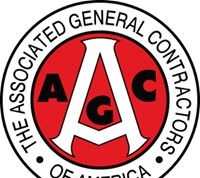Appraisal Institute Aids U.S. Department of Energy on Home Energy Efficiency
CHICAGO – June 2, 2015 – (RealEstateRama) — The Appraisal Institute today announced it has joined the U.S. Department of Energy’s new Better Buildings Accelerator, which will convene leaders to focus on key solutions to expanding energy efficiency in the residential sector.
The Appraisal Institute, which is the nation’s largest professional association of real estate appraisers, and 31 other partners will focus on expanding awareness of homes’ energy efficiency and streamlining the processes used to help consumers improve the efficiency of their homes.
The Better Buildings Home Energy Information Accelerator supports the president’s Climate Action Plan with a goal to accelerate investment in home energy efficiency improvement projects across the country, according to the Energy Department.
“The Appraisal Institute is honored to be part of this important initiative and to work with the Energy Department and other partner organizations,” said Appraisal Institute President M. Lance Coyle, MAI, SRA. “This opportunity is yet another example of the Appraisal Institute’s leadership in green and energy-efficient valuation.”
The Home Energy Information Accelerator brings together leaders in real estate and energy efficiency to expand the availability and use of reliable home energy information at relevant points in residential real estate transactions. The Energy Department said Accelerator partners will develop and demonstrate replicable, sustainable approaches that make energy-related information – such as a home’s efficiency certification or its estimated energy usage – easily available through multiple listing services and other reports.
“The Appraisal Institute is well positioned to help this effort because we already have contributed positive solutions in green and energy-efficient valuation,” Coyle said. “Our education, books and other resources have led the way in addressing these issues.”
Better Buildings Accelerators convene leaders across sectors and building types to address persistent barriers that stand in the way of greater efficiency. As Better Buildings Home Energy Information Accelerator partners share their successes with the market, resources will be posted in the Better Buildings Residential Program Solution Center. The Solution Center is an online tool designed to help organizations explore the solutions tested and proven by partners.
As a cornerstone of the president’s Climate Action Plan, Better Buildings aims to make commercial, public, industrial, and residential buildings 20 percent more energy-efficient over the next decade. This means saving hundreds of billions of dollars on energy bills, reducing GHG emissions and creating thousands of jobs, according to the Energy Department. Through Better Buildings, public and private sector organizations across the country are working together to share and replicate positive gains in energy efficiency.
The Appraisal Institute long has been the leader in green valuation. In addition to its partnership with the Energy Department, the Appraisal Institute has demonstrated its leadership in green and energy-efficient valuation in many other ways:
Since June 2008, the Appraisal Institute has offered nearly 450 individual education programs on green and energy efficient valuation, and more than 6,200 attendees have participated.
The Appraisal Institute in April 2015 extended its partnership with Build It Green, a California-based “green” building organization, to offer relevant education courses to appraisers and others.
In February 2015, the Appraisal Institute released its Commercial Green and Energy-Efficient Addendum, the first form of its kind for appraisers’ use. It is intended to help analyze values of commercial buildings’ energy-efficient features.
Two Appraisal Institute members contributed to a landmark study released in January 2015 by the U.S. Department of Energy’s Lawrence Berkeley National Laboratory that found that home buyers consistently have been willing to pay more for homes with host-owned solar photovoltaic energy systems. The eight-state, 12-year study produced the most authoritative estimates to date of price premiums for U.S. homes with PV systems.
At the request of appraisers’ clients, in April 2014 the Appraisal Institute expanded its Valuation of Sustainable Buildings Professional Development Program’s online registries of residential and commercial appraisers to include everyone who has completed the course.
The Appraisal Institute released a new book, “Residential Green Valuation Tools” by Sandra K. Adomatis, SRA, in April 2014. AI previously published “An Introduction to Green Homes” by Alan Simmons, SRPA, in 2010.
The Appraisal Institute and the Institute for Market Transformation issued guidance in January 2014 on valuing green and energy efficient buildings.
In October 2013, the Appraisal Institute partnered with the Colorado Energy Office to provide an analysis of the impact of solar PV systems on the home-buying process. The study sought to better understand the impact, if any, that solar PV has on the sales transaction process.
In March 2013, the Appraisal Institute released an update to the Residential Green and Energy Efficient Addendum, the first form of its kind intended for appraisers’ use. It is an optional addendum to Fannie Mae Form 1004, the appraisal profession’s most widely used form for mortgage lending purposes that allows appraisers to identify and describe a home’s green features, from solar panels to energy-saving appliances.
In February 2013, the Appraisal Institute added a new solar course to its Valuation of Sustainable Buildings Professional Development Program, which educates appraisers on the intricacies of valuing high-performance residential and commercial buildings, and consists of four courses: “Introduction to Green Buildings: Principles & Concepts;” “Case Studies in Appraising Residential Green Buildings;” “Case Studies in Appraising Commercial Green Buildings;” and “Residential and Commercial Value of Solar.”
In January 2012, the Appraisal Institute announced its support for PV Value, a spreadsheet developed by Solar Power Electric and Sandia National Laboratories that assists appraisers and others seeking to establish the value of a property’s solar-powered features.
In October 2011, the Appraisal Institute endorsed the federal Sensible Accounting to Value Energy (SAVE) Act, which would improve the mortgage underwriting process by ensuring energy costs are included. Sponsored by Sens. Michael Bennet, D-Colo., and Johnny Isakson, R-Ga., the SAVE Act would instruct federal loan agencies to assess a borrower’s expected energy costs when financing a house. IMT also is among the bill’s supporters.
The Appraisal Institute contributed to the Green MLS Tool Kit, issued in April 2010. The tool kit was created to help Realtors add a green initiative to their local multiple listing service. The tool kit provides guidance on enhancing data in the MLS, empowering appraisers to make well-supported comparisons, analyses and adjustments.
# # #
Stay connected with the latest news from the Appraisal Institute by following us on Facebook, Twitter, LinkedIn, YouTube and our blog, Opinions of Value.
The Appraisal Institute is a global professional association of real estate appraisers, with nearly 21,000 professionals in almost 60 countries throughout the world. Its mission is to advance professionalism and ethics, global standards, methodologies, and practices through the professional development of property economics worldwide. Organized in 1932, the Appraisal Institute advocates equal opportunity and nondiscrimination in the appraisal profession and conducts its activities in accordance with applicable federal, state and local laws. Individuals of the Appraisal Institute benefit from an array of professional education and advocacy programs, and may hold the prestigious MAI, SRPA, SRA, AI-GRS and AI-RRS designations. Learn more at www.appraisalinstitute.org.














